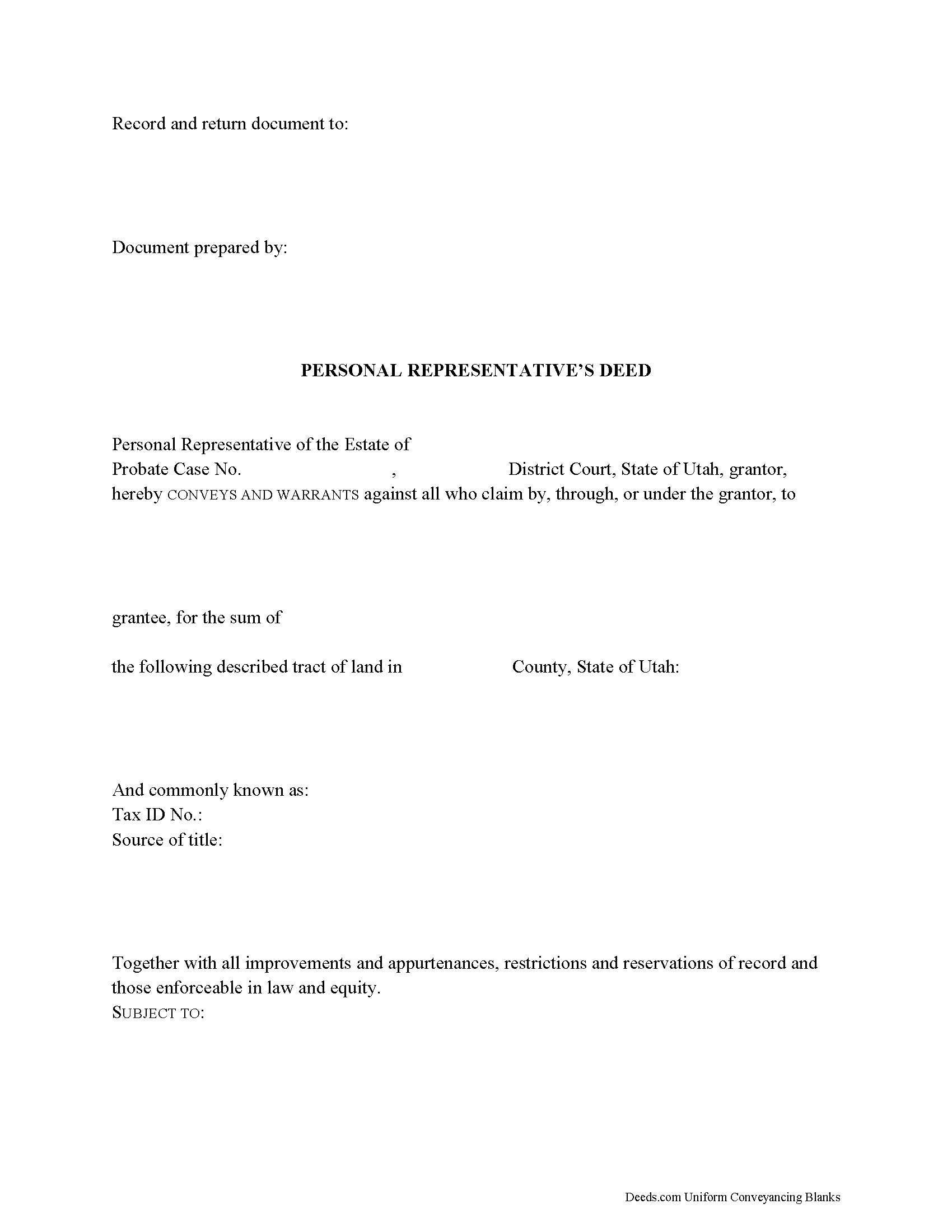Download Utah Personal Representative Deed Legal Forms

Utah Personal Representative Deed Overview

A personal representative's deed is a fiduciary instrument used in probate proceedings. Probate is the process of settling and distributing a decedent's estate. The Utah Uniform Probate Code is codified at Title 75 of the Utah Code.
Executed by a personal representative (PR), the PR deed transfers fee simple title to a purchaser following a sale of real property from an estate.
When assets are insufficient to pay creditors' claims, the PR may be required to sell assets from the estate. Transactions that the PR is authorized to enter are outlined in 75-3-714, and include the sale of real property. To transfer title following a sale of real property, the PR executes a deed. A personal representative's deed is named after the executing officer, but typically carries the same covenants as a special warranty deed.
A special warranty deed is a statutory form under 57-1-12.5. By including the specific language that the grantor "conveys and warrants against all who claim by, through, or under the grantor," the PR covenants with the purchaser (grantee) that the property is free from encumbrances made by the grantor and that the grantor will defend the grantee's title against valid claims from persons arising from the time the grantor obtained title, but none other.
PR deeds identify the personal representative as the granting party, reference the decedent by name, and cite information about the probated estate, including the district court in which probate is opened and the case number assigned to the estate. To properly convey title, include the grantee's full name, mailing address, and vesting information. All documents must meet state and county recording standards for form and content.
PR deeds have the same content requirements as any deed affecting title to real property, including a consideration statement of the value exchanged for the transfer, a legal description of the subject parcel, the tax identification number assigned by the taxing authority, and a recitation of the grantor's source of title. Any restrictions on the property should also be noted on the face of the deed. The PR must sign the deed in the presence of a notary public before recording in the appropriate county.
Include a water rights addendum under 57-3-109. This form must be completed and signed by the grantor. Submit the deed and any required supporting documents, such as a copy of the PR's letters, to the recording office of the county where the real property is situated.
The information provided here is not a substitute for legal advice. Consult an attorney licensed in the State of Utah with questions regarding personal representative's deeds and probate procedures in that state, as each situation is unique.
(Utah PRD Package includes form, guidelines, and completed example)